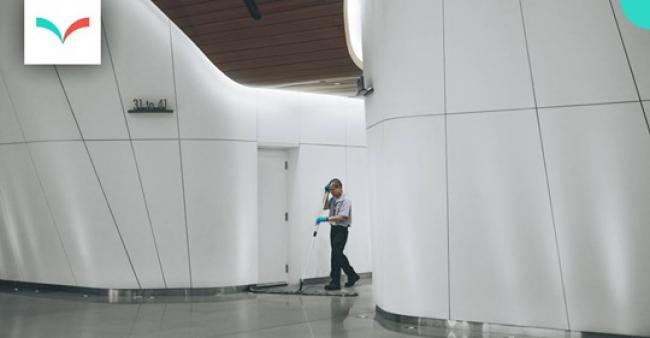Articles Menu

MAY 14, 2020
Despite providing vital services and risking their well-being just by going to work, many previously “invisible” private-sector employees — like janitors, personal support workers and truckers — now deemed essential are still among the most overworked and underpaid.
In response, Services Employees International Union (SEIU) Local 2 has launched a national unionization drive for these essential workers.
The Unions are Essential campaign began on May 12, 2020, as a result of the pandemic’s major toll on workers, said communications coordinator Assya Moustaqim-Barrette. SEIU Local 2 has observed that some of its own members are still not getting adequate personal protective equipment and proper training on how to use it — a common concern in many workplaces. As a result, thousands of essential workers across Canada have contracted COVID-19, and some have died.
For decades, the private-sector unionization rate in Canada has been in decline — it was just 16 per cent in 2019, according to Statistics Canada. This makes it hard to gather information and know the full extent of the impact of COVID-19 on workers, said Moustaqim-Barrette.
And these issues come on top of systemic challenges that many workers in these sectors face, including low wages and few to no paid sick days.
“While everyone else is able to work from home, these folks are still on the front lines working in dangerous conditions and for very low wages,” said Moustaqim-Barrette.
“It’s essential for them to have a voice, to be heard by their employers and the government, and to improve their working conditions in terms of wages and health and safety.”
Dr. Mark Thompson, a University of British Columbia professor emeritus of labour relations, sees “a mixed bag” for organizing during the pandemic.
He said the precarious situation is raising awareness and discussions among the public about the systemic issues that workers face — a trend that Moustaqim-Barrette also noted.
“If you’re called essential, you say to yourself, ‘Why am I getting the minimum wage when I’m so essential?’” Thompson said. “So if they are truly essential — and I’m not arguing with that — the rates of pay and working conditions don’t seem to be appropriate.”
But he pointed out physical distancing measures would increase isolation and pose challenges for organizing, since much of the process relies on face-to-face contact.
Moustaqim-Barrette agrees.
“Organizing a workplace involves a lot of sitting down with people, having coffee, listening to them,” she said. “A lot of labour people kind of felt very discouraged at the start of the pandemic because initially it seems like we wouldn’t be able to speak to workers directly anymore, we wouldn’t be able to hold votes.”
But the union has since found some workarounds.
For instance, Moustaqim-Barrette noted that while essential workers at Lonsdale and Tsawwassen Quay Markets in B.C. started organizing before COVID-19, they voted to unionize with mail-in ballots after the coronavirus emerged and physical distancing was put in place. Bargaining is also going ahead.
“The organizing that we do in the future until a vaccine is created for this virus, we'll just have to be adaptable and receptive to the conditions,” she said.
Organizing “isn’t something that should be put on hold during a pandemic. It should be prioritized.”
At the same time, SEIU Local 2 — which represents over 10,000 janitors in Canada — is still pushing forward its From Invisible to Essential campaign, which calls for employers to provide a $2-per-hour raise and personal protective equipment for janitors.
Despite the work required for both campaigns, Moustaqim-Barrette believes they are mutually beneficial.
“The bigger the labour movement, the more power that we have and the more receptive government and employers are to our demands … [and] the better it will be for all the workers,” she said.